Escape from Germany (Part 3 -In the Prison Camp.)
The story of the life of my father. Arthur Brown, Topper, as he was known in the Army. He was taken prisoner in the Battle of Dunkirk and remained as a prisoner of war for almost five years. He then managed to escape and arrived back in England a few months before the war ended. The next few posts will trace his life, his wartime experience and the way, years later, he was finally reunited with the Polish family who saved his life.
For the two previous episodes please see links at the end of this post.
Then and Now!
Between the ages of nineteen and twenty three, I went to college, became a teacher, travelled to many countries, played music and fell in love for the first (but not last) time. My father at that same age was a prisoner of war in Poland for nearly five years , constantly dreaming of the war being over and to be able to return home. He was captured in the Battle of Dunkirk on May 26th,1940 and arrived back in England on April 17th, 1945.
The Letters Home
His experiences in a Prisoner of War Stalag during this time were carefully recorded in the many letters he sent home to his family.
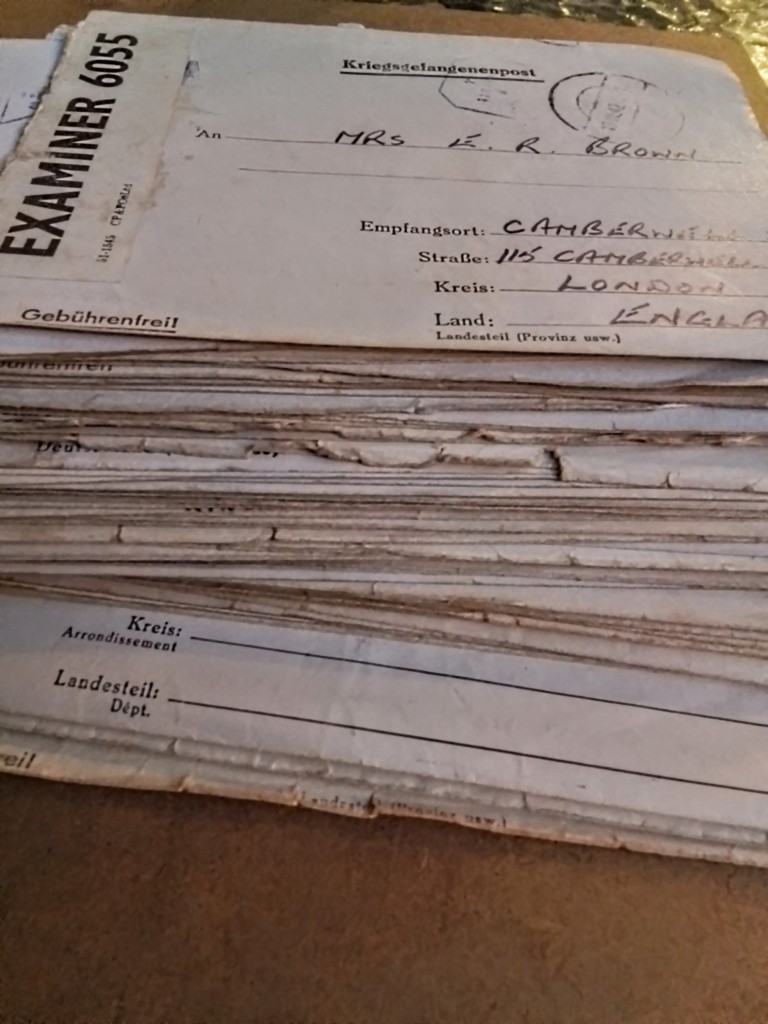
It is amazing that during such a long and bloody war, the prisoners were able to send and receive regular mail from home. All incoming and outgoing mail was sent through the neutral country, Switzerland and was organised through the Red Cross. All mail was examined by both English and German censors.
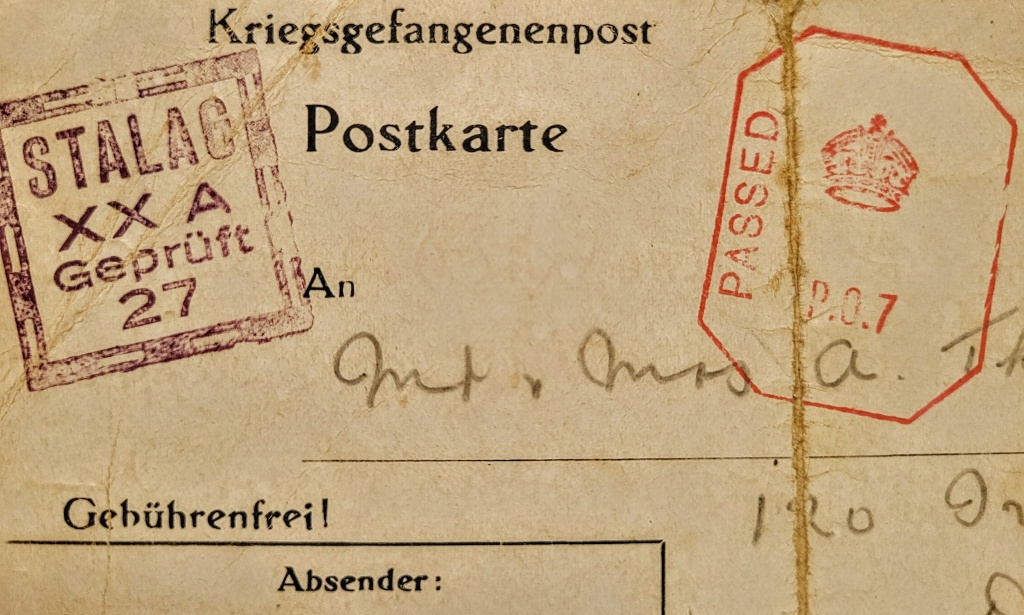
How Long?
The POWs (Prisoners of War) had to construct a new reality and adjust to a completely different and unforeseen way of life. A great difficulty for the prisoners was not knowing how long the war would last and when they would eventually be set free. In this letter dated July 1941, my father says, “Perhaps it won’ t be long now.”
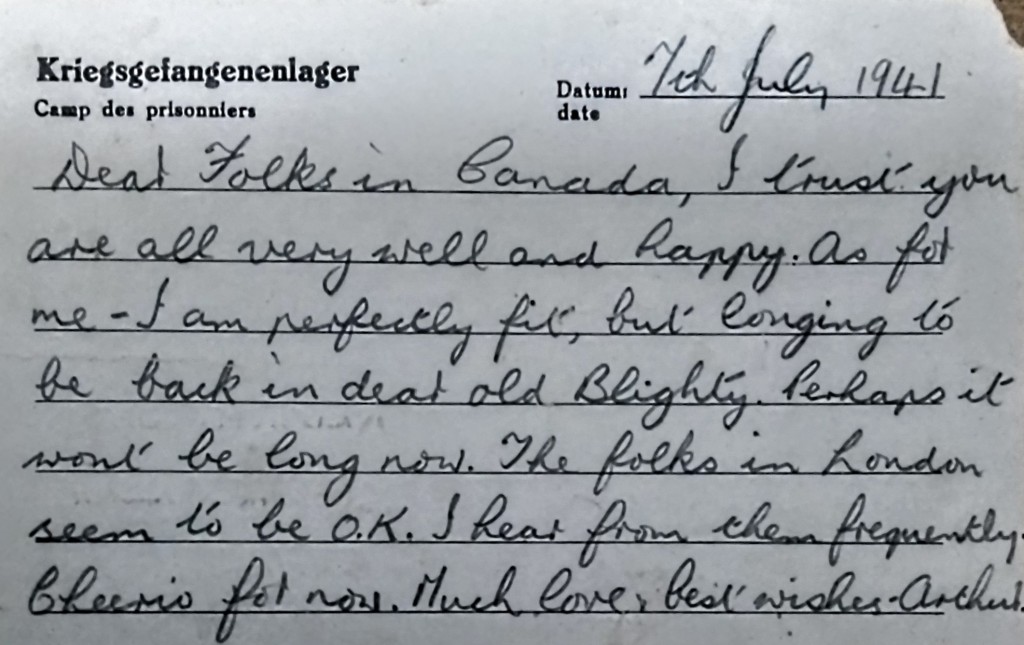
Here, years later he reflects that he has now been a prisoner of war for three long years.
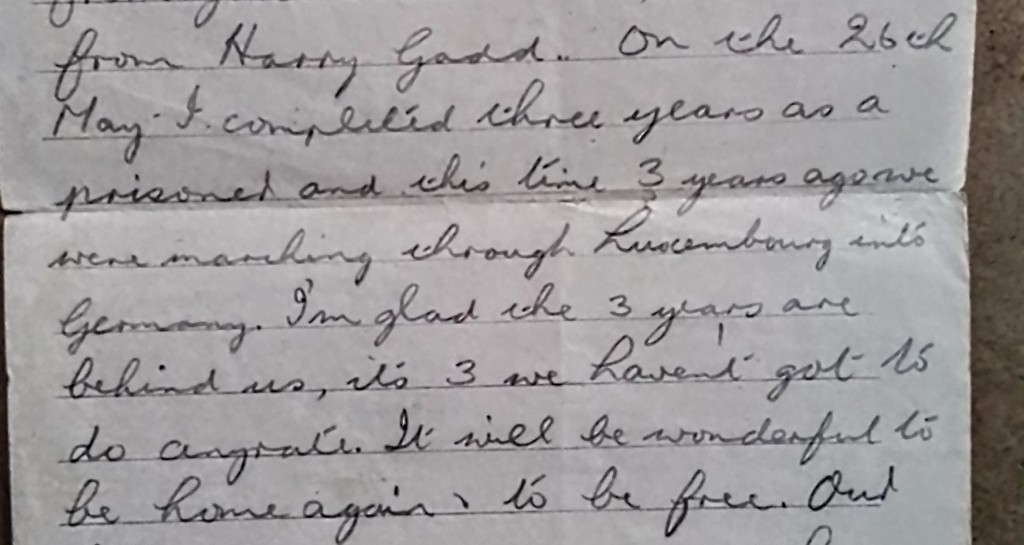
However, it would be a further two years before he would come home.
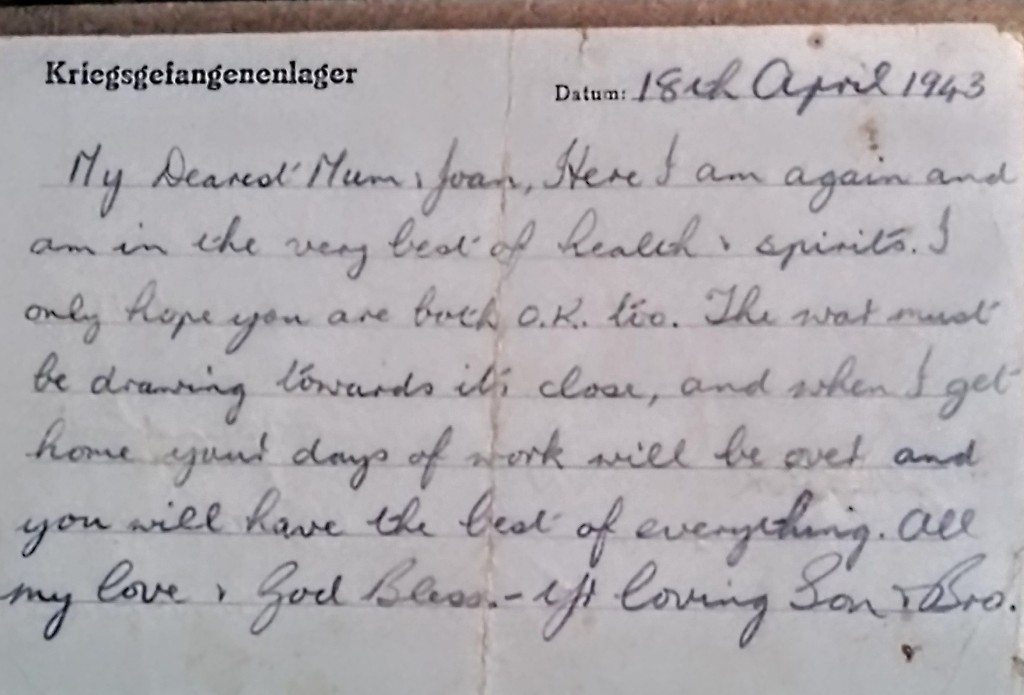
Life as a Prisoner
The first year of captivity was extremely unsettling and demanding, “horrible” was the word my father used. He says that the Germans did their best to feed them but it simply was not enough. The prison camps had recently been established and the infraestructure and logístics was still weak.
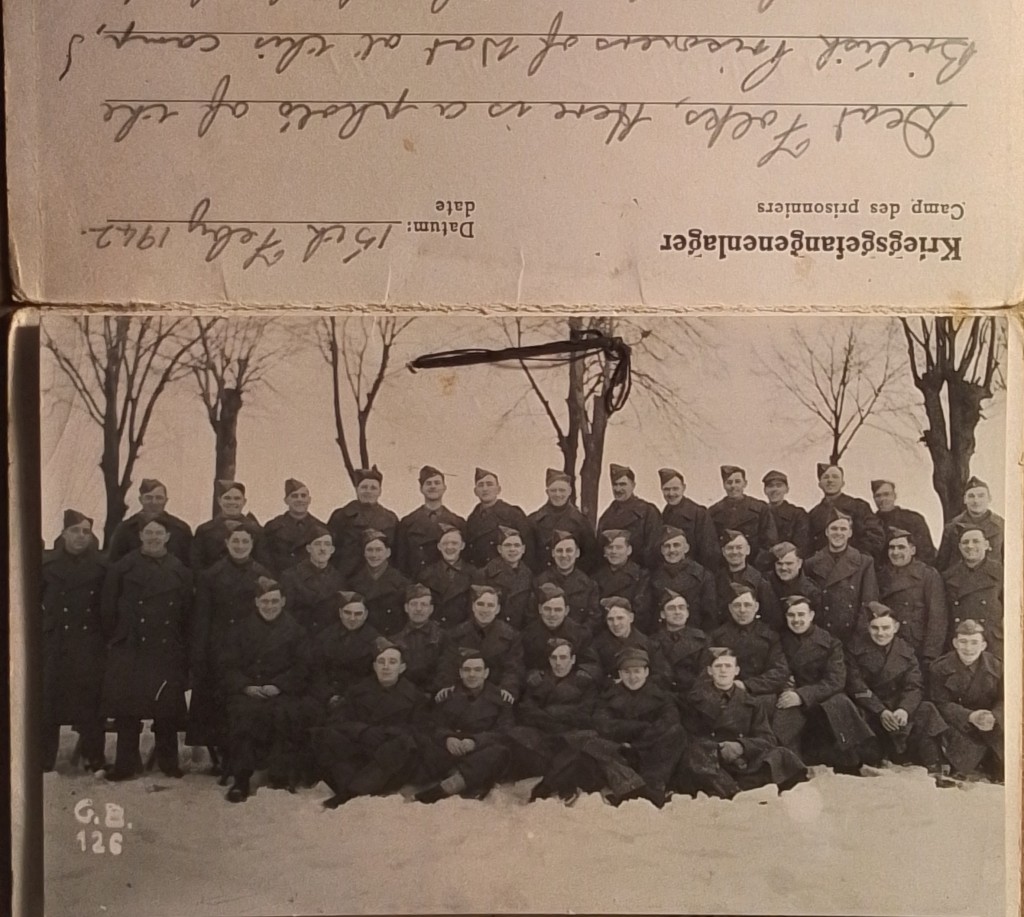
From the second year, he reported that things were somewhat improved, and that ” it wasn’t exactly a Holiday Camp, but at least was tolerable”. It is likely that this positive “cheerfulness” was aimed at keeping his family from worrying. “
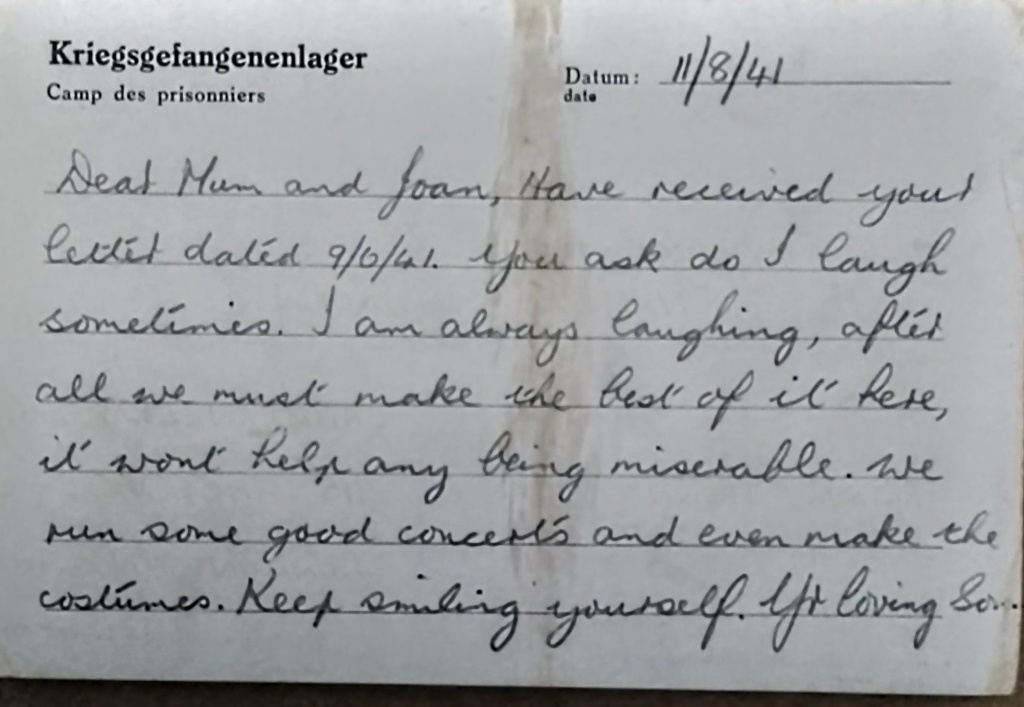
Parcels
The saving grace for the soldiers were the parcels sent from the Red Cross. Generally, as from the second year of his captivity, the prisoners each received one parcel per week, which supplemented their diet substantually,
.
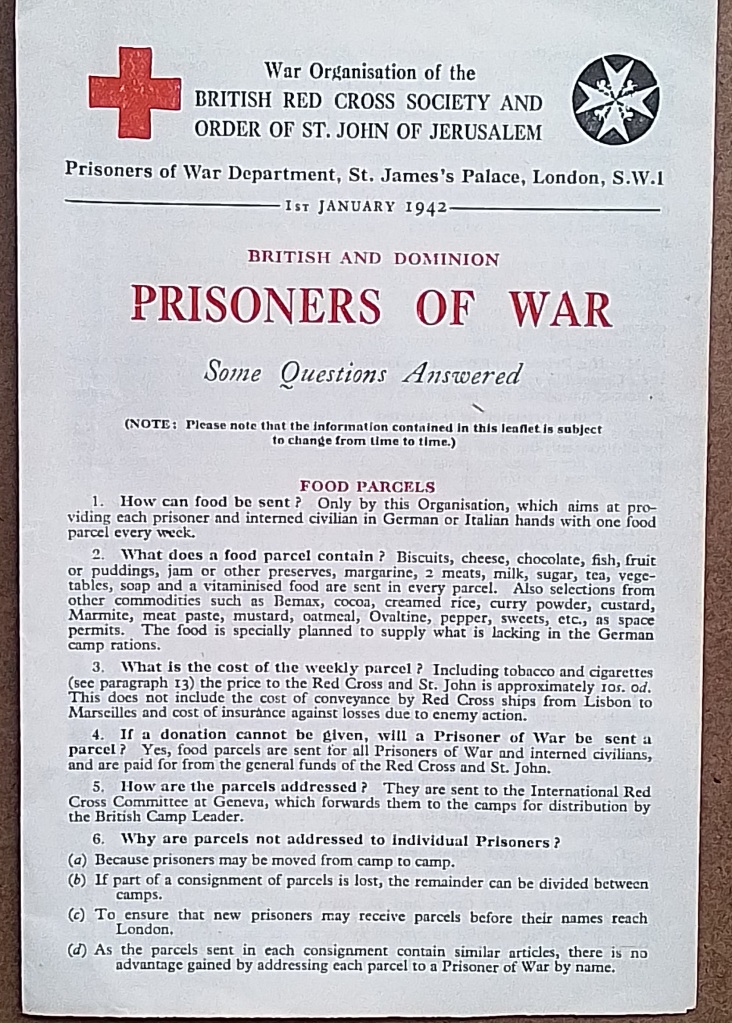
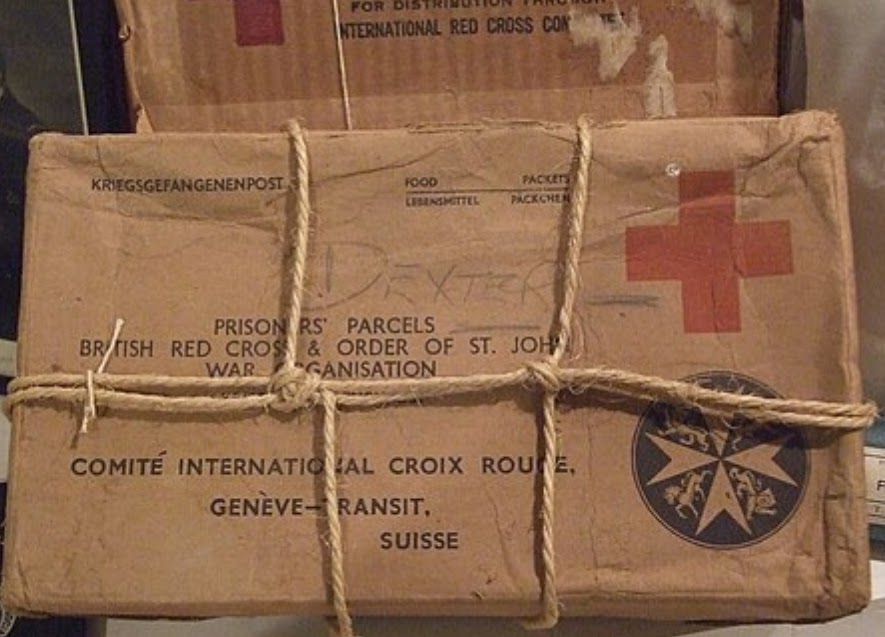
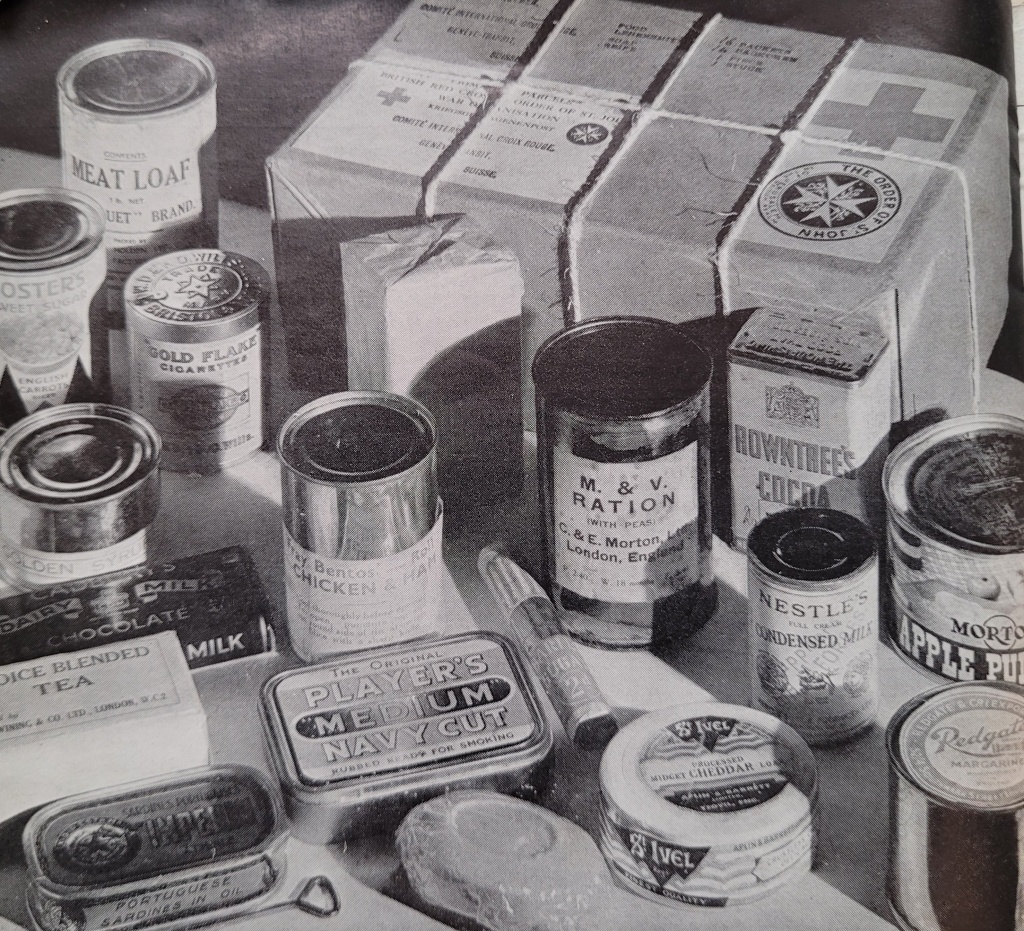
Parcels could also be sent to the prisoners from their families. Although these parcels took some time to arrive, they usually arrived complete without anything missing.
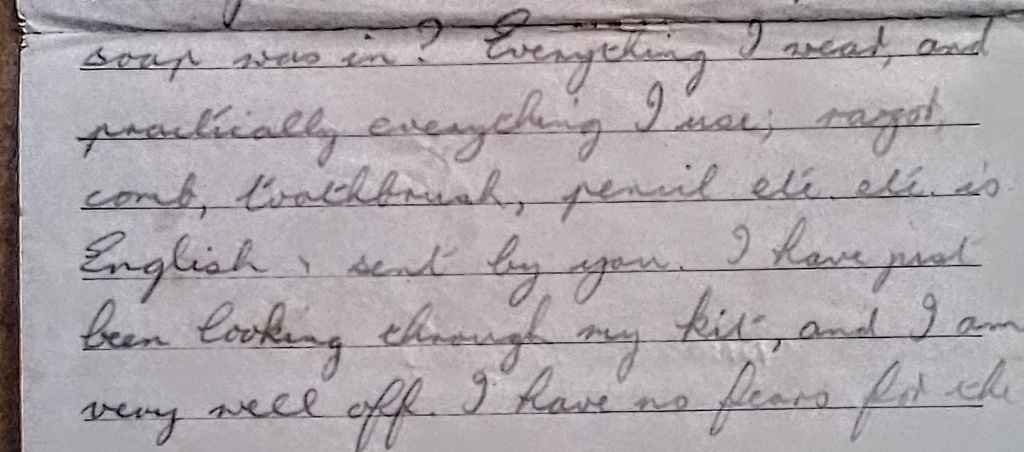
As my father was in the Royal Signals Corps he also got parcels from the “Royal Signals Association”. Here he shows his gratitude for a new pair of boots he received.

In the letters there were regular requests for cigarettes and pipe tobacco. Cigarettes were included in the Red Cross parcels, but the soldiers clamoured for more, This, for my father, formed a lifetime habit. From the time I was a child, until the day he passed away, he was always puffing away on his old pipe.
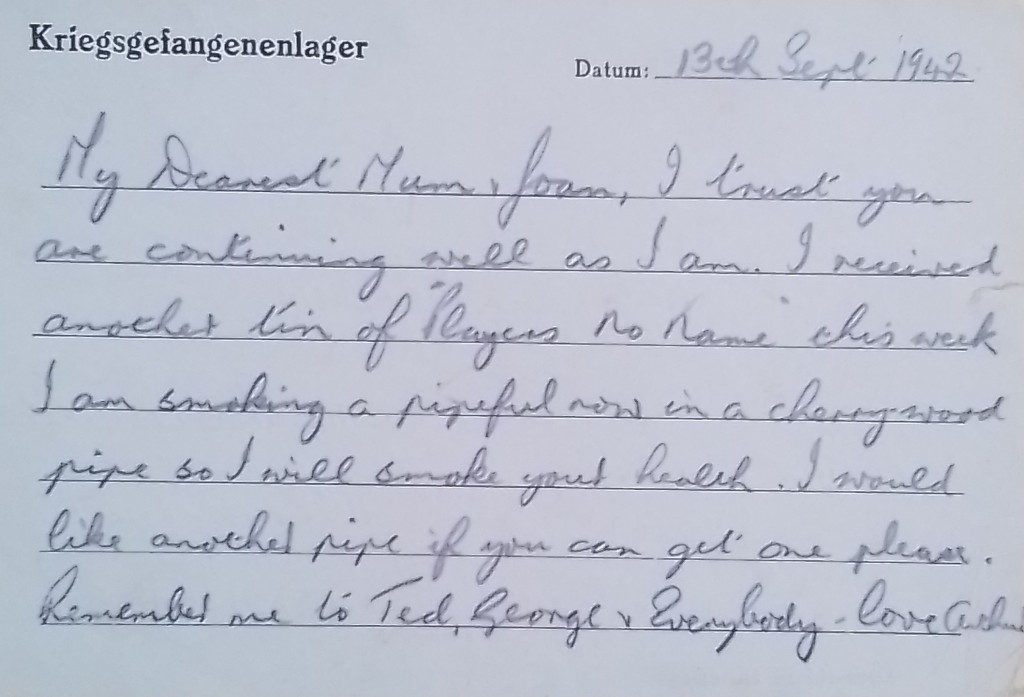
Many soldiers asked for books from home so that they could study. My father asked for books to learn how to speak German. Although not fluent he could speak the language better than most of the prisoners.
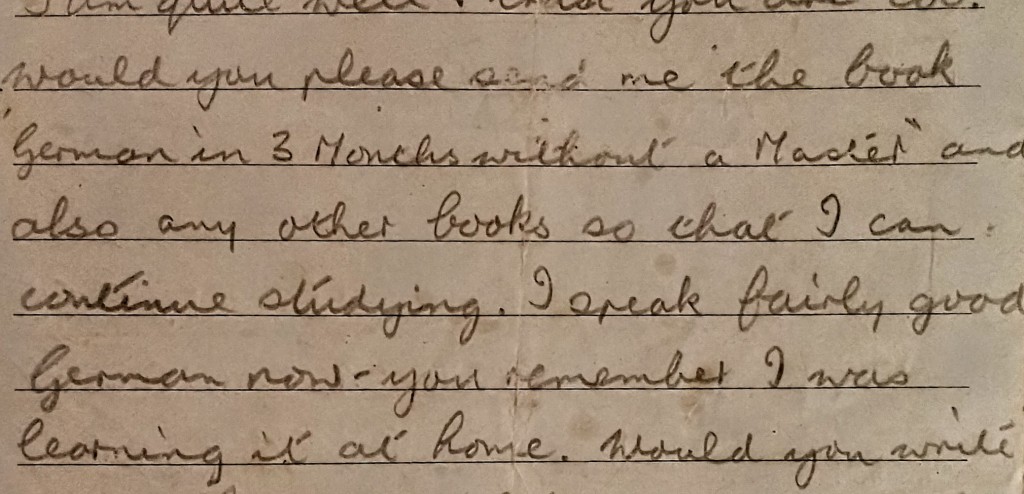
One day, the Commandant of the Stalag was furious about some misdeed of the prisoners, and called them all out on parade. Once they were all assembled, he called on my father to translate his fiery message. The Commandant started to rant and rave. After five minutes, he stopped so my father could translate to the prisoners. . My fatherˋs reply was “I don’t know what he said chaps, but he ain’t half angry.” The consequent laughter was not what the Commandant expected and so the outcome for my father was a few days in the “cooler”
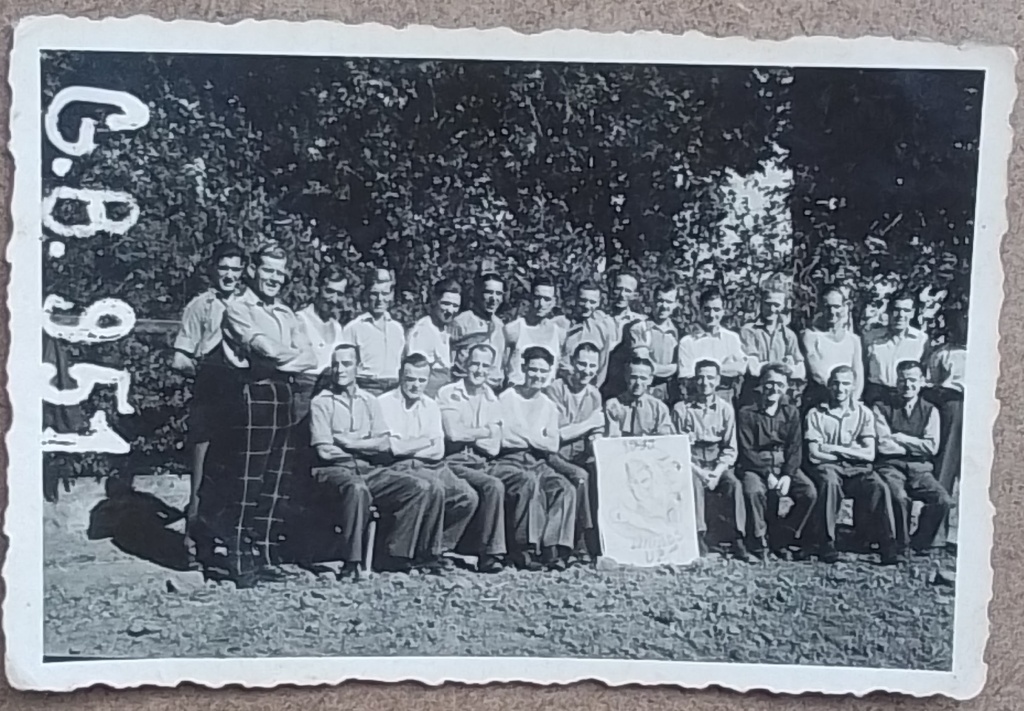
Keeping Up the Spirits
The families of prisoners received regular publications with the intention of putting their minds at ease. The monthly publication including articles and news from the different camps.
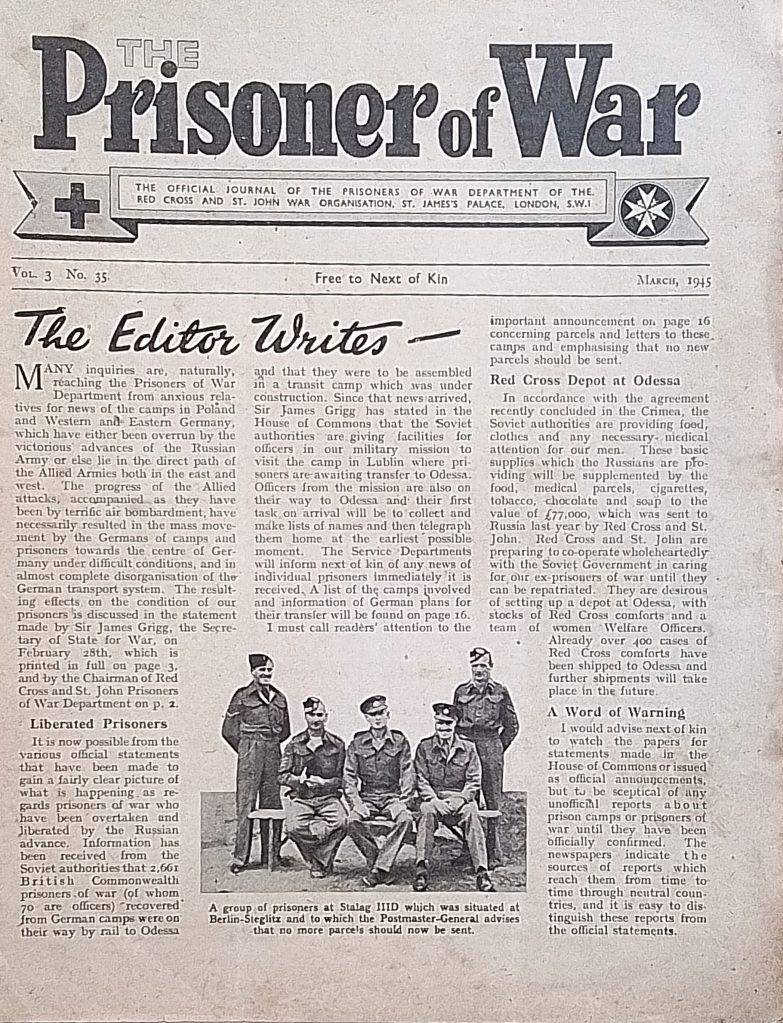
Here, prisoner’s Mums found knitting patterns so that they could knit their boys warm jumpers for the winter ready to send in their next parcel.
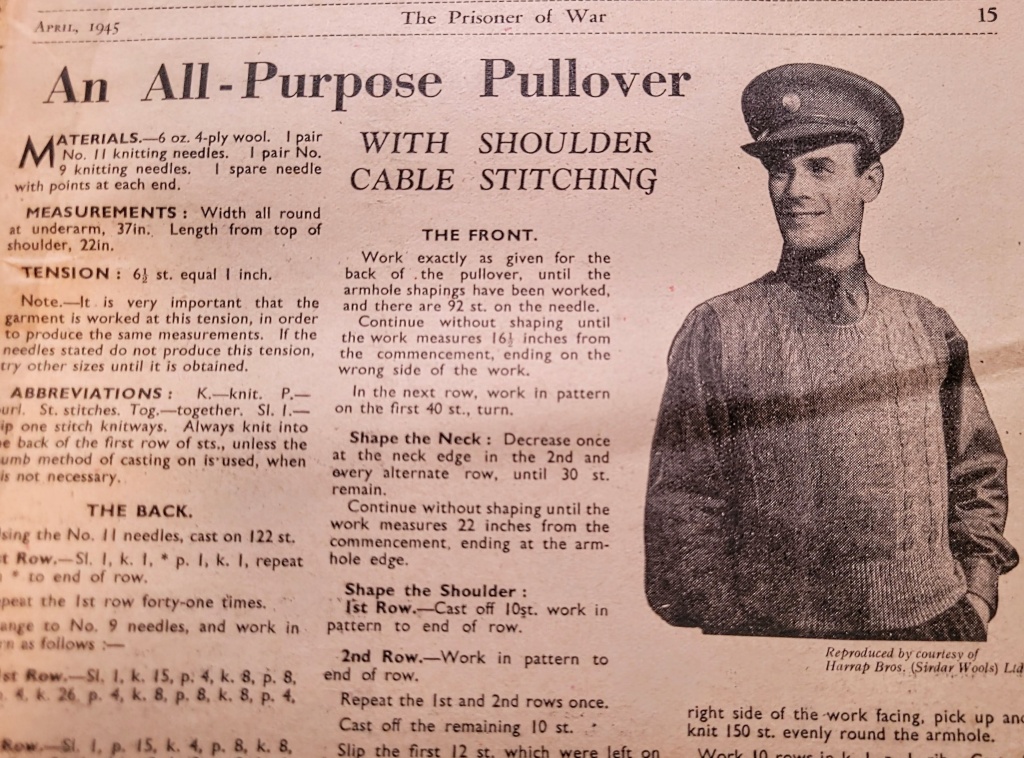
And there were also details of the “fun” activities happening in the camps, such as this theatre production in my father’s camp, Stalag XXA.
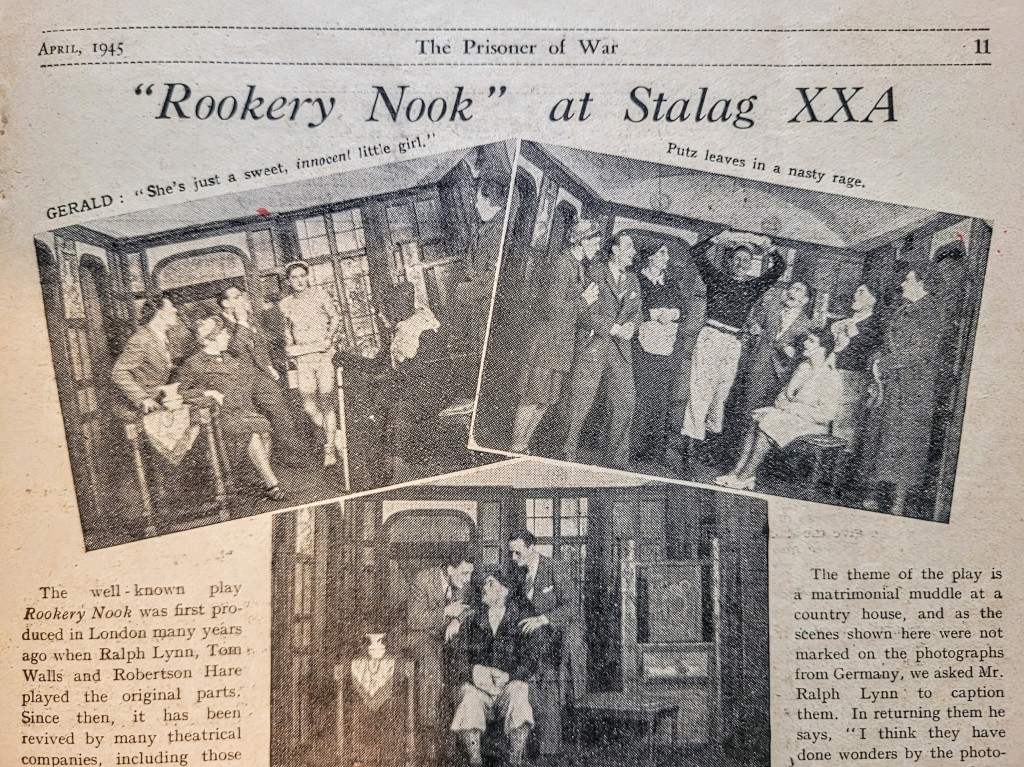
Indeed, out of necessity for their own sanity and well-being, the prisoners had to make their own entertainment.
As well as shows and concerts, there were football competitions, darts tournaments and many more activities.There was always a football to kick around and darts, even musical instruments arrived in the parcels from home.
There were about fifteen men in my father’s billet. Their darts team was called the Sandown Sharpshooters.
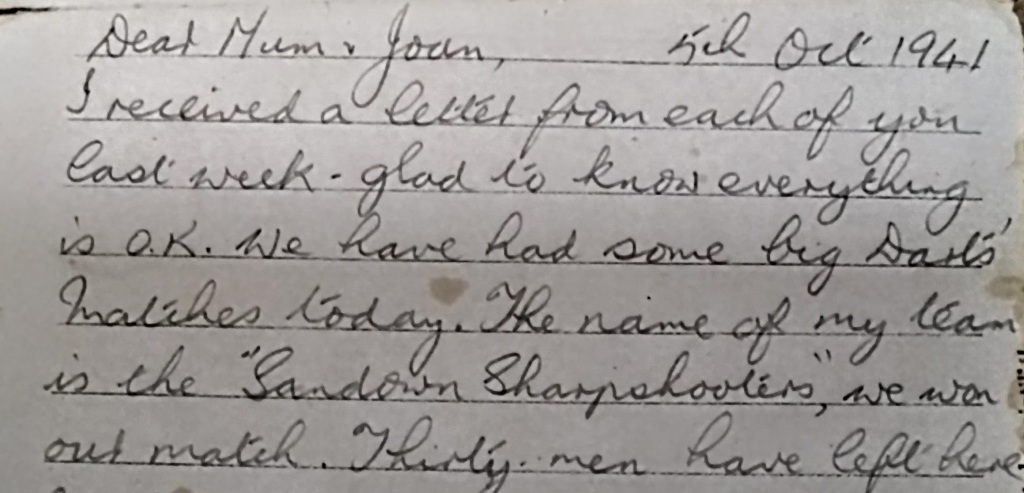
They even managed to get a gramaphone through the Red Cross. Originally they only had records with German dance bands, but little by little records would trickle in through the parcels. My father claimed he knew by heart every Bing Crosby song. I remember as a young boy the songs he used to sing when shaving in the morning. Many of his repertoire came from those wartime days.
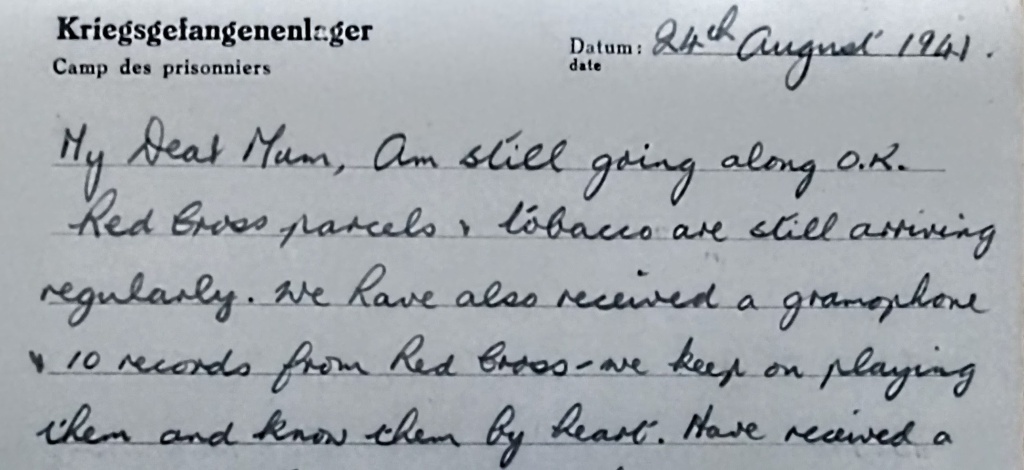
The prisoners looked forward to special days like Christmas, celebrating and making their own decorations.
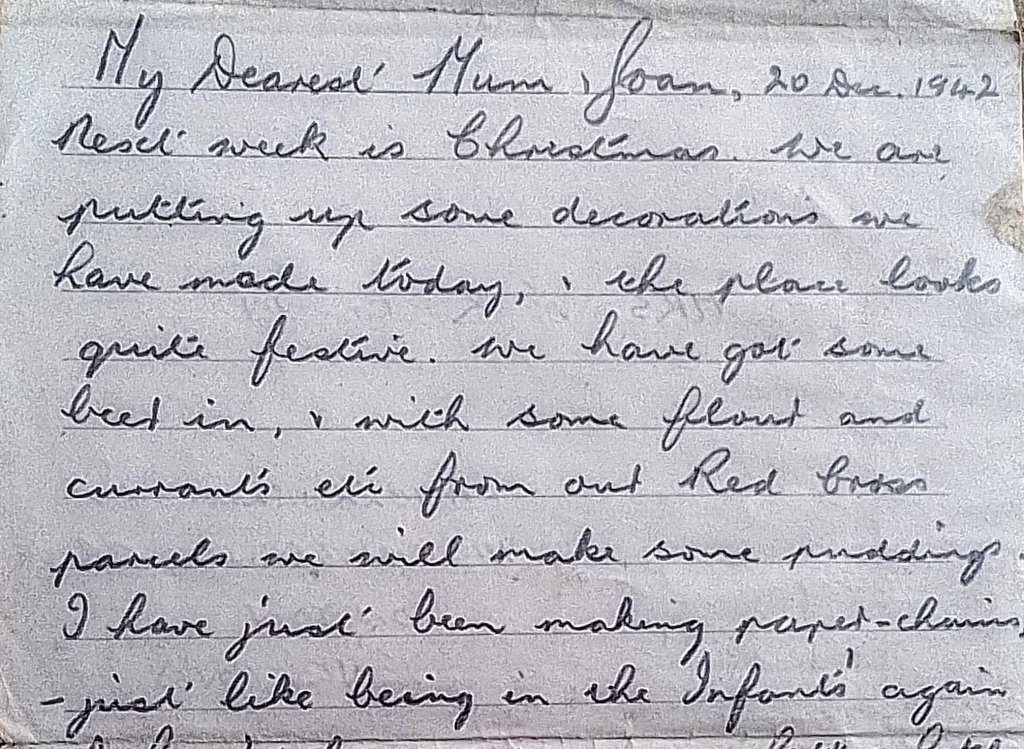
Working
However, the prisoners were not always in the main camp. According to the Geneva Convention, it was permitted for enlisted soldiers to work. For this they were paid “camp money”, which allowed them to purchase a limited amount of things back in the Stalag. They went with their guards to the work place in groups of about ten to fifteen prisoners.They stayed sometimes for weeks or months, and then finally returned to the Stalag.
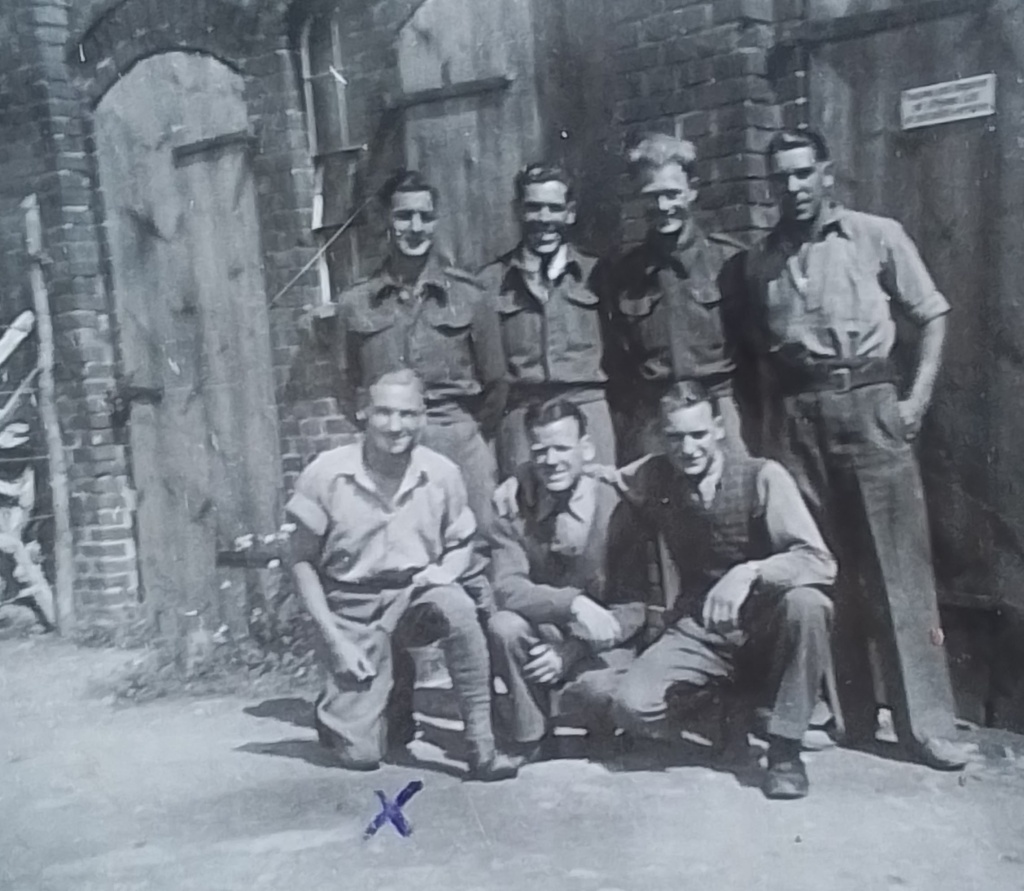
In his time as a prisoner, he worked repairing roads, worked in a brick factory, and on a farm. It was hard physical work, but many prisoners preferred this than being in the Stalag. They were always under guard but things were more relaxed and the constant activity made the time pass more quickly.
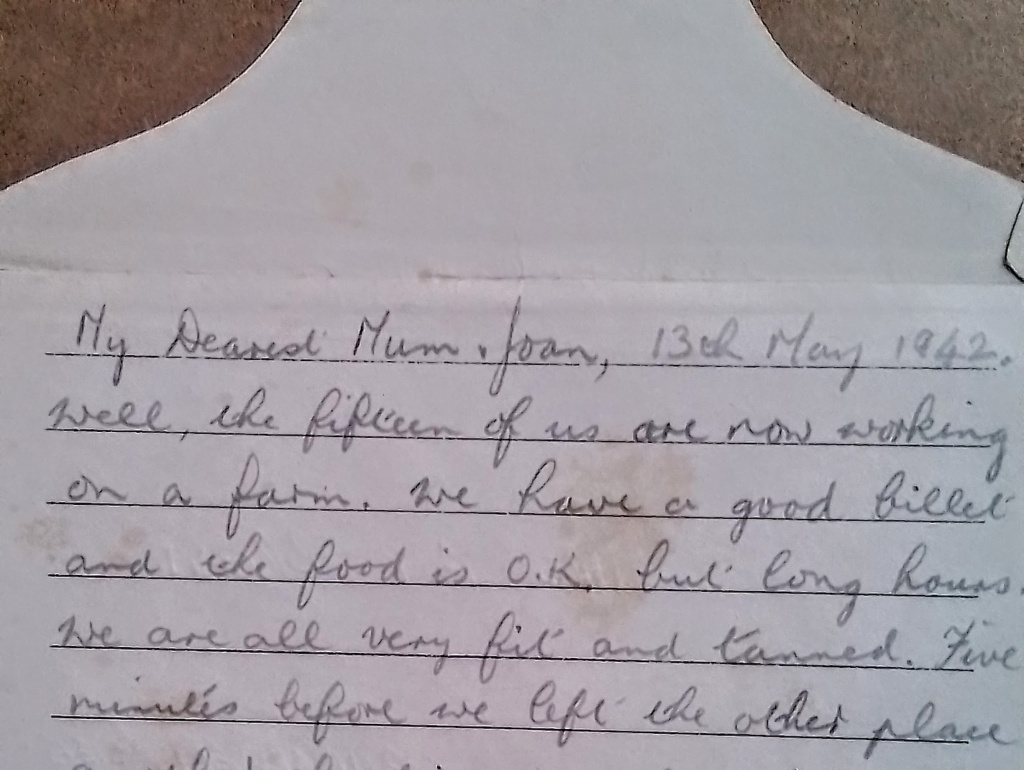
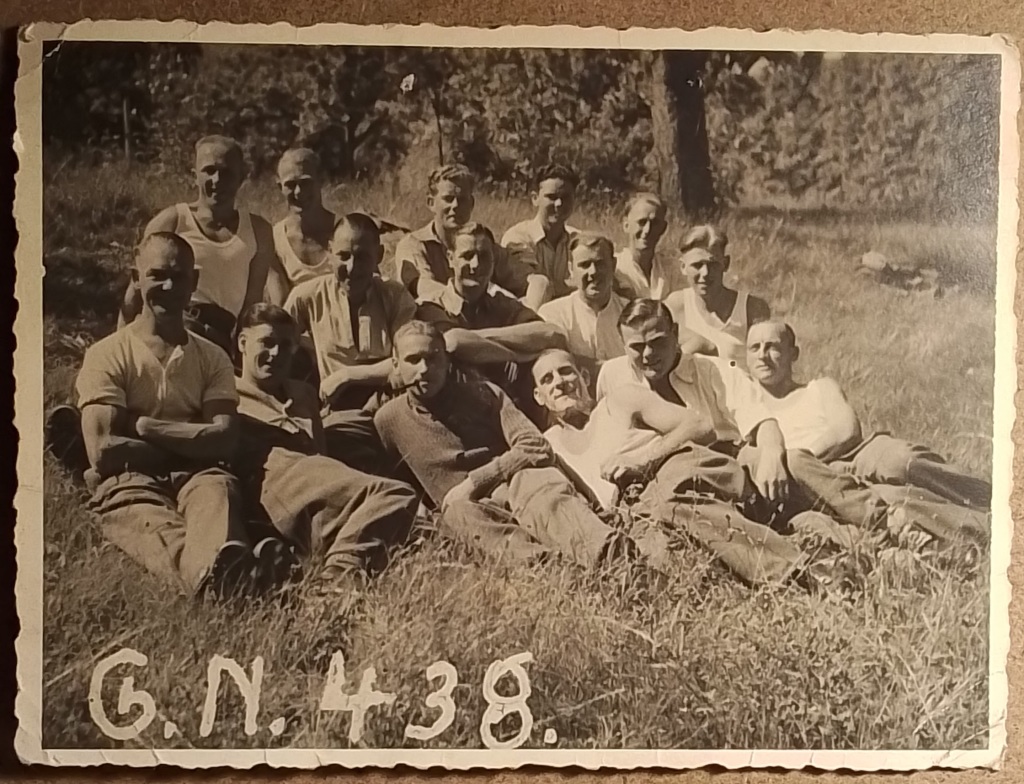
Sunday was the day off. The following letter was written while he was working on the farm. A bath once a week, and the German Corporal helped them to get their washing done.
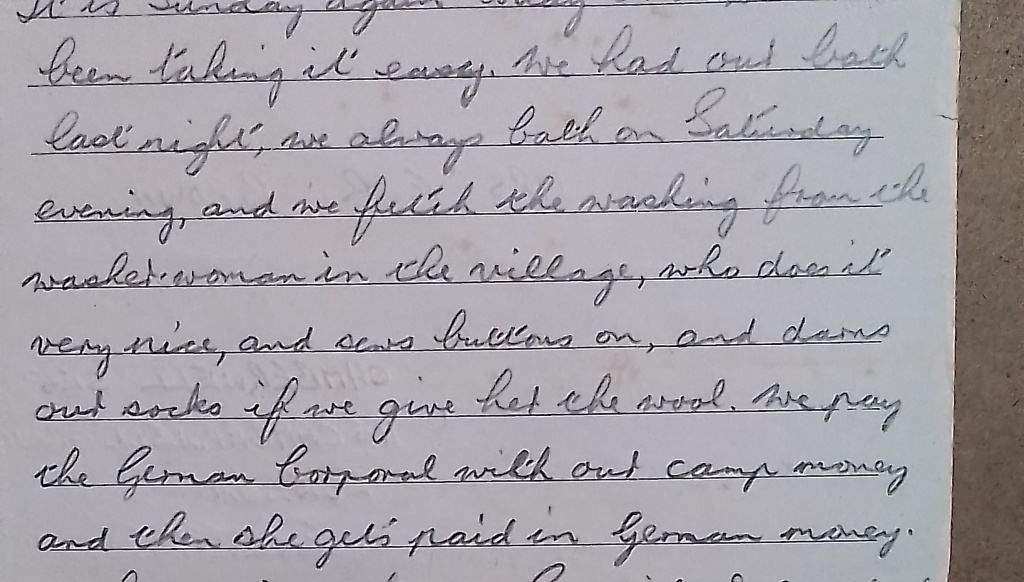
The prisoners were always under guard during the day and locked up at night. One prisoner, who had become friendly with a local farm girl found that he could escape for an hour or two by taking the hinges out of the locked door. Such is love!
Again, as I have explained in earlier episodes, it wasn’t that difficult to escape from this kind of camp, but the enormous challenge was how they could then get to the distant allied border safely, not an easy task and one my father attempted but failed to succeed, on a number of occasions. (See Episode 2)
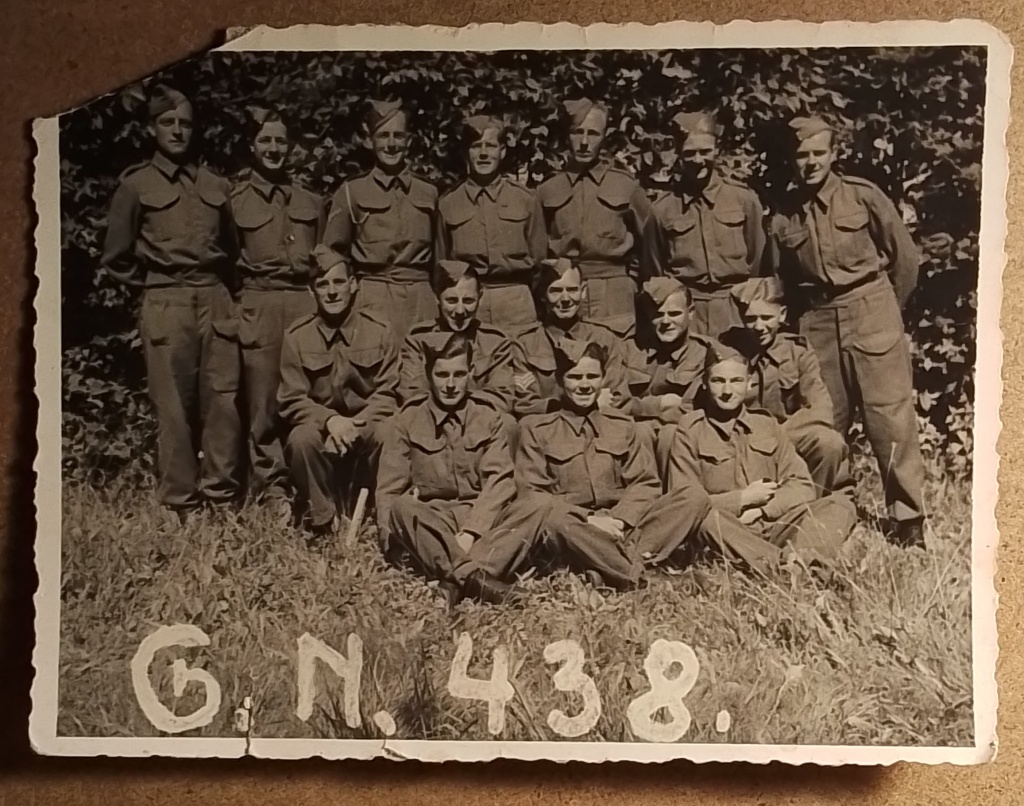
My father liked working on the farm. However his last work assignment came when he was moved to a punishment camp after his attempts to escape. This time he worked cutting down trees in the forest. No escaping here….. extra guards and….. each night the guards took the prisoners boots and trousers before locking them up for the night.
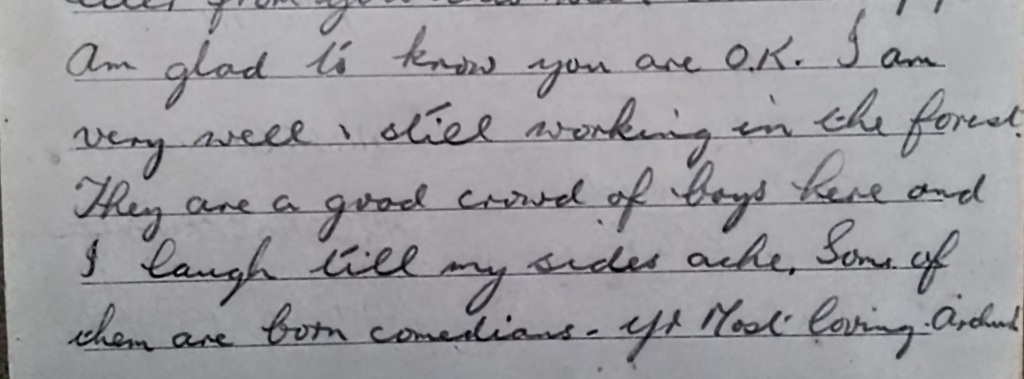
In one letter he expresses his preference for working in the forest. He mentions the smell of the pine cones. Here, although a prisoner, cutting down trees, he seemed to connect and be at one with nature, a momentary time to disconnect from all the troubles and worries.

Almost Five Years!
A prisoner for almost five years! My father never said a bad work against his captors neither in his letters, nor in his comments after the war finished. The guards for him, were just doing their job and were very much like themselves but on “the other side”. There was the inevitable frustration of not being free, but in general there was no animosity towards the guards. They were, after all, young men, young soldiers just like they were.
However, this view, perhaps simply reflects the gentle, loving person that was my father. He did his best to remain positive. He tried to keep his spirits up and that of his comrades, and through his letters, his family at home as well. Despite looking through his letters and the optimistic expression always shown in my father’s writing, (“I am always laughing, after all we must make the best of it here.”) , I am sure you can all fully understand just how traumatic and damaging this experience must have been for such a young man,
However, it is now 1945 and the Russians are advancing in Poland on the Eastern Front. Little did my father know, at this time, that his prisoner of war experience would be nothing compared with what he was about to confront, as you will find out in the next Episode.
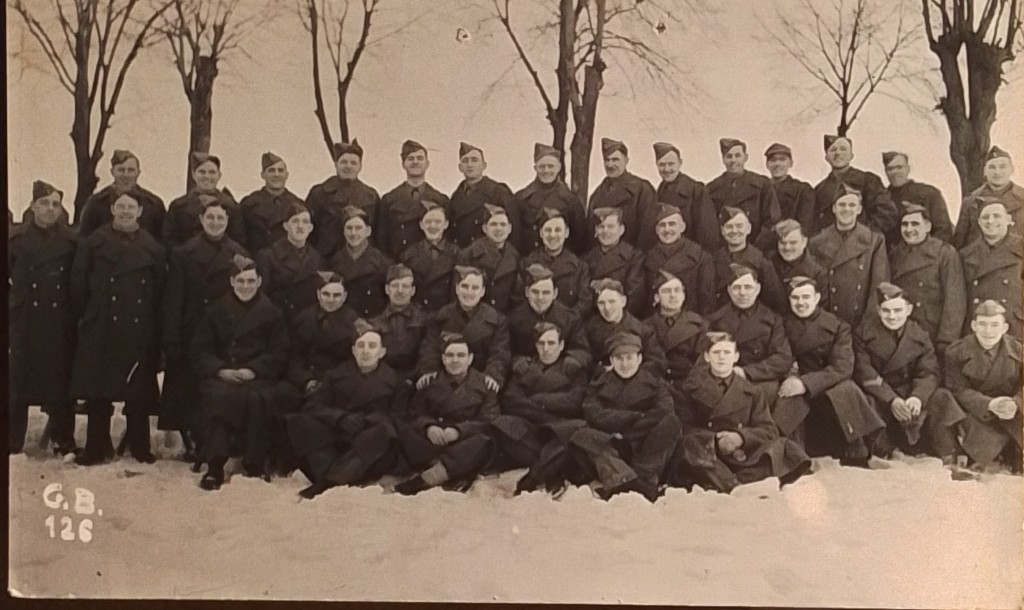
Leave a comment